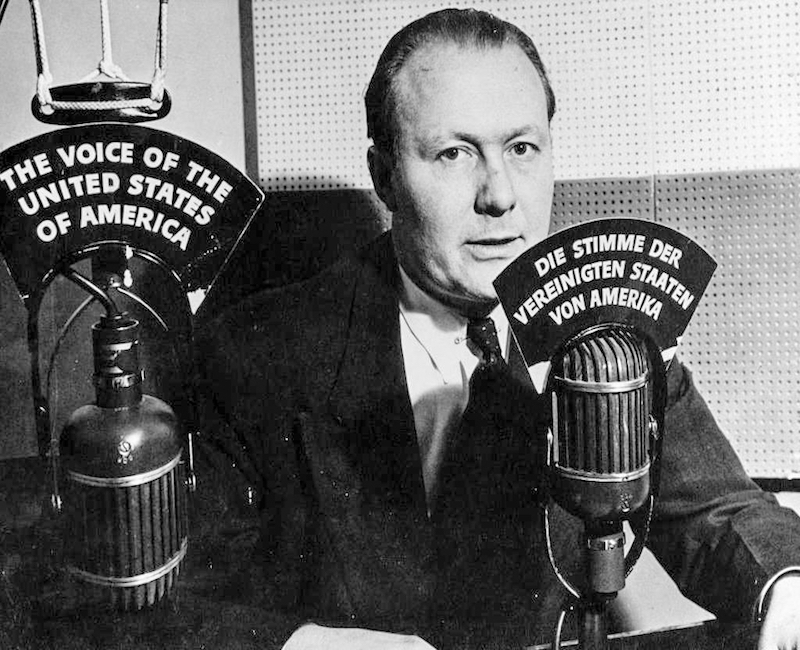On February 1, 1942, the first Voice of America (VOA) radio broadcast in German may have gone on the air. There has been some uncertainty as to the exact date when in February 1942 the first such VOA shortwave radio program reached the listeners in Europe. Moreover, for the first several years, the name “Voice of America” was not yet used. The early broadcasts had various names, such as “America Calling Europe” or the “Voice of the United States of America.” Older VOA promotional brochures, including one that was printed in 1970, said that “the VOA came into being February 24, 1942” with its first German broadcast beginning with these words: “Daily at this time we shall speak to you about America and the war. The news may be good or bad. We shall tell you the truth.”
Today, the Voice of America is managed by the U.S. Agency for Global Media (USAGM). According to official government employee surveys, USAGM has been for many years the worst federal agency to work for, with the lowest employee morale.
What the successive Voice of America management teams never admitted, is that the early VOA broadcasts, while accurate on most news, did not tell the whole truth and endangered the lives of some VOA listeners with disinformation. Early VOA broadcasters, many of them Soviet sympathizers, some of them members of various communist parties, used propaganda to present the Soviet Union as a progressive country and its dictatorial leader, Joseph Stalin, as a supporter of democracy who should be trusted by the people in East-Central Europe.
The Voice of America management also has never admitted that John Houseman, the person who was later presented as the first VOA director, was secretly forced to resign by the Roosevelt administration, itself extremely pro-Soviet, after being accused by high-level State Department officials and liberal friends of President Roosevelt, of hiring Communists for VOA jobs and excessively promoting Soviet and communist interests. Houseman’s position was also not the most important one in the Office of War Information (OWI), where radio broadcasts for overseas audiences were produced until 1945.
Some of Houseman’s OWI bosses were also pro-Soviet fellow travelers. Houseman’s key assistant, Howard Fast, became in 1943 VOA’s chief news writer and editor. Later that year, he formally joined the Communist Party. In January 1944, he was also secretly forced to resign. In December 1953, Howard Fast received the International Stalin Peace Prize. Other Soviet sympathizers hired by the Voice of America continued to censor unfavorable news about the Soviet Union and Stalin until the early 1950s when the Truman administration replaced them with anti-communist refugee journalists from East-Central Europe.
Treated for decades as second-class citizens and denied direct access to wire services by U.S.-born, mostly white, mostly left-leaning, and mostly male Voice of America managers and reporters, these VOA immigrant broadcasters, some of them outstanding women journalists who fought against Nazi Germany and spent time in communist prisons, did their best to win the propaganda war with the Soviet Union and its satellite regimes. These refugees, who could not return to their communist-ruled homelands, helped to win the Cold War for the Voice of America.
READ
80 Years of VOA: Different Names of the Voice of America


